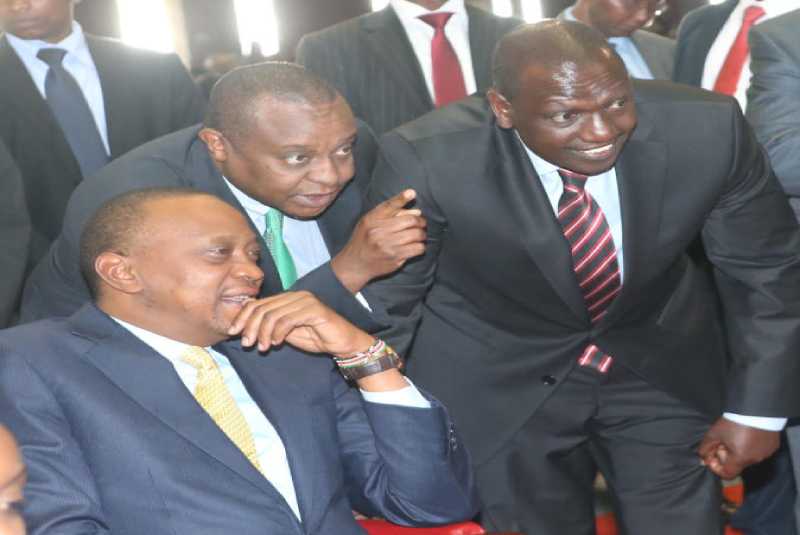×
The Standard e-Paper
Home To Bold Columnists

President Uhuru Kenyatta with Deputy President William Ruto and Cabinet Secretary for Finance Henry Rotich consults during the Launch of the Electronic Procurement and payment System at KICC. [Photo: Standard]
Travels, fuel guzzlers and duplication in parastatals continue to fuel the wastage, costing Kenyans billions of shillings annually.